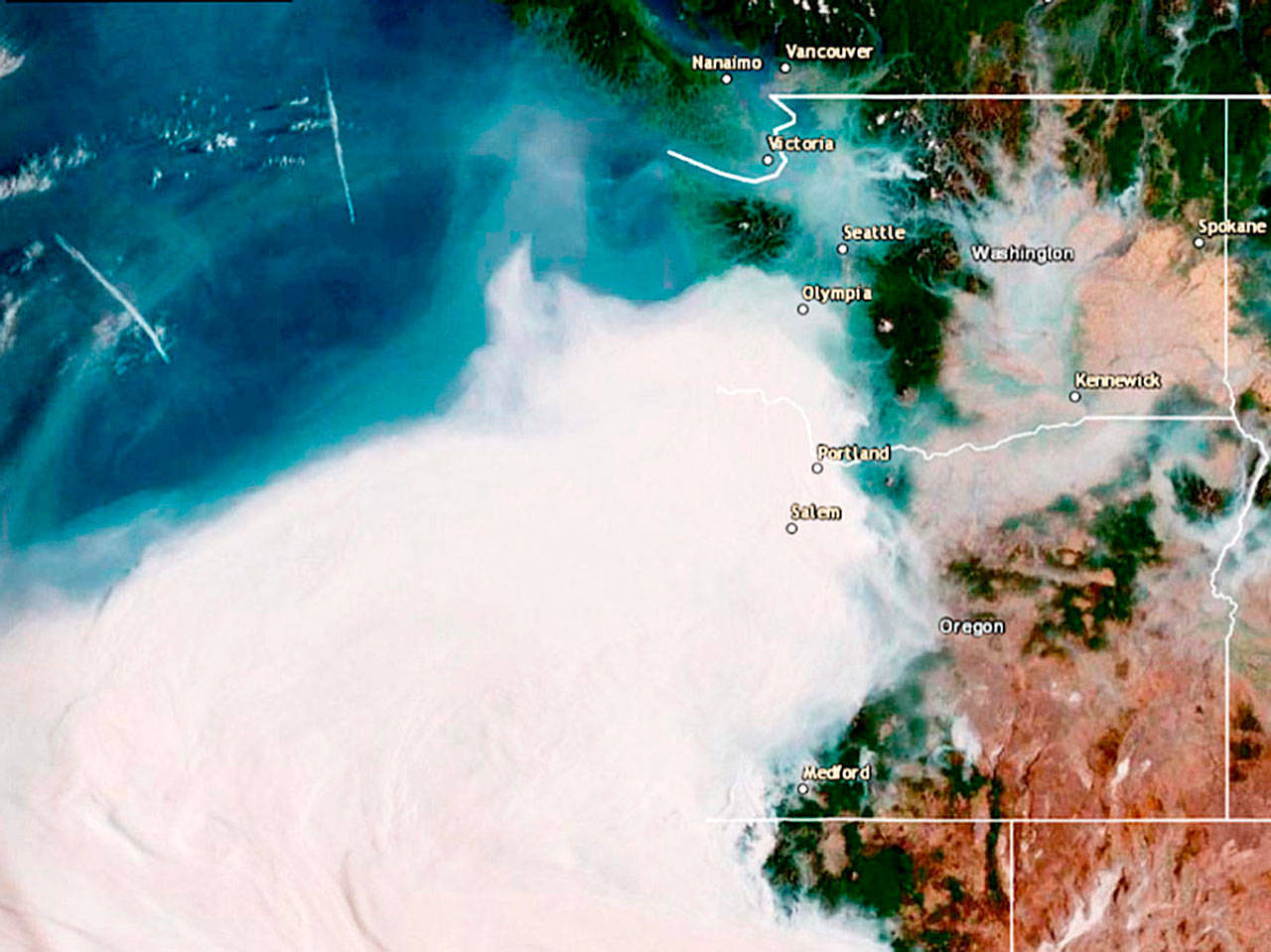A super-massive body of wildfire smoke from fires in Oregon and California is beginning to move into Washington, and air quality is declining, according to the Washington State Department of Ecology.
This smoke is expected to impact Western Washington, the Columbia Basin, and even Spokane as it moves overhead. Not much smoke has mixed down to the surface yet, but smoke forecasts show unhealthy or worse levels starting Thursday night on the Peninsula and then through the I-5 Corridor.
And Saturday looks worse.
This morning, the Puget Sound Clean Air Agency and the health departments of King, Kitsap, Pierce, and Snohomish counties released a joint alert about current air pollution due to the wildfire smoke, warning that may cause health problems.
For Friday morning and afternoon, heavy smoke from Oregon will reduce the air quality to unhealthy levels, and air quality may continue to worsen throughout the day, posing a risk especially to sensitive groups this weekend into early next week. But current air quality conditions are unhealthy for everyone and may reach very unhealthy levels by this afternoon, according to the alert.
Fire marshals in King, Kitsap, Pierce, and Snohomish counties have issued fire safety burn bans prohibiting outdoor burning including recreational fires.
Everyone should take precautions, especially infants, children, and people over 65, or those that are pregnant, have heart or lung diseases (such as asthma or COPD), respiratory infections, diabetes, stroke survivors, and those suffering from COVID-19.
Here’s what is recommended at this time:
- Stay at home when possible.
- Limit your activity outdoors, such as running, bicycling, physical labor, sports or hobbies.
- Close windows in your home, if possible, to keep the indoor air clean. If you have an air conditioner, use it in recirculation mode. Make sure your home ventilation system is maintained following manufacturer recommendations (e.g., replace filters regularly). Don’t contribute to indoor air pollution. Use a portable air cleaner if available.
Heat can be dangerous, too. If it becomes unbearably hot, it’s better to open the windows for a short period of time.
Masks with the label “N95” or “N100” are the most effective type of face covering that protects people from air pollution, but due to the ongoing COVID-19 response, those should be reserved for health care and other frontline workers for now. While cloth face coverings are recommended to reduce the spread of COVID-19, they offer limited protection from air pollution and wildfire smoke and must be properly worn. Any mask or face covering should be used only as a last resort to protect against wildfire smoke.



